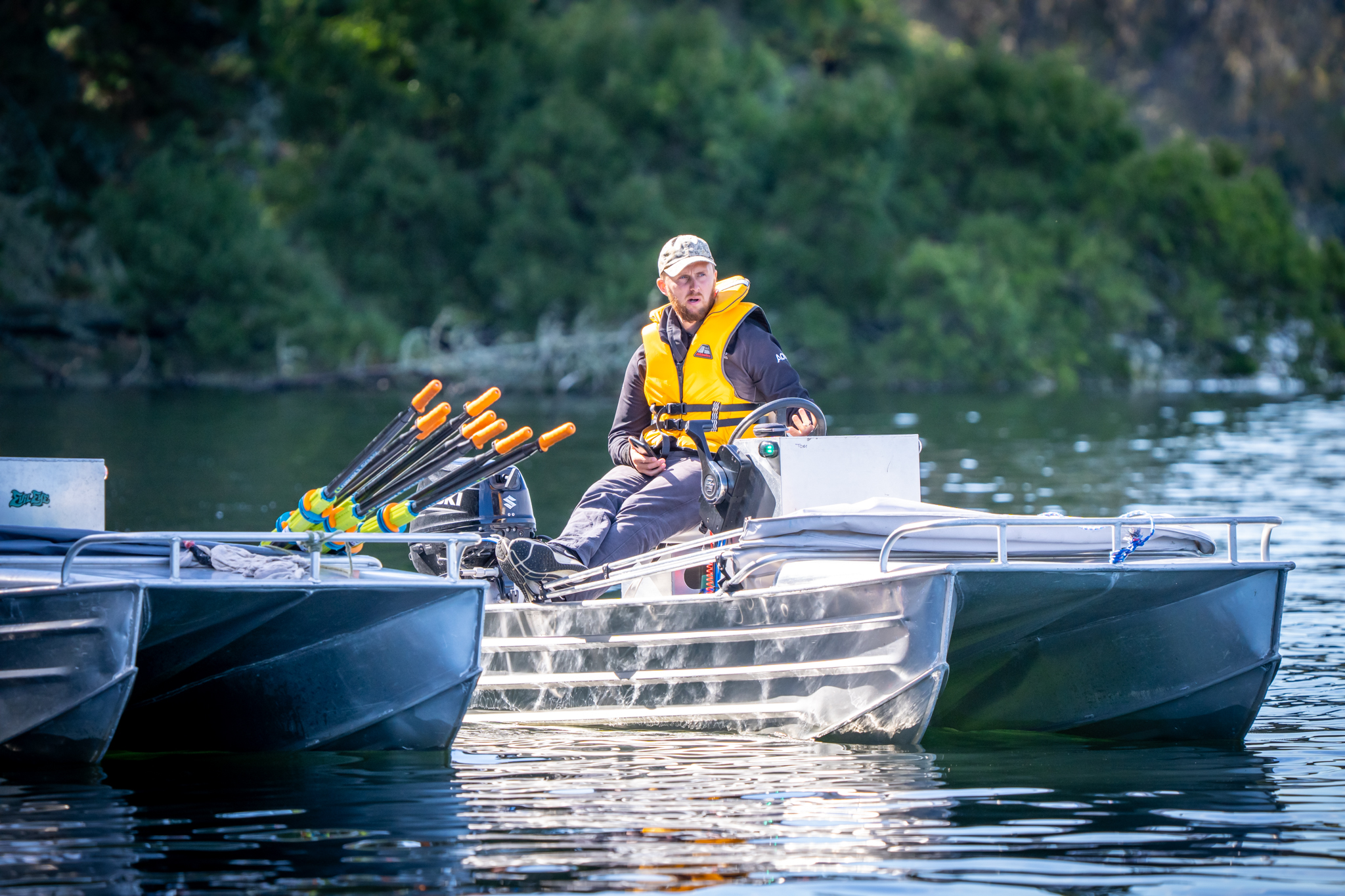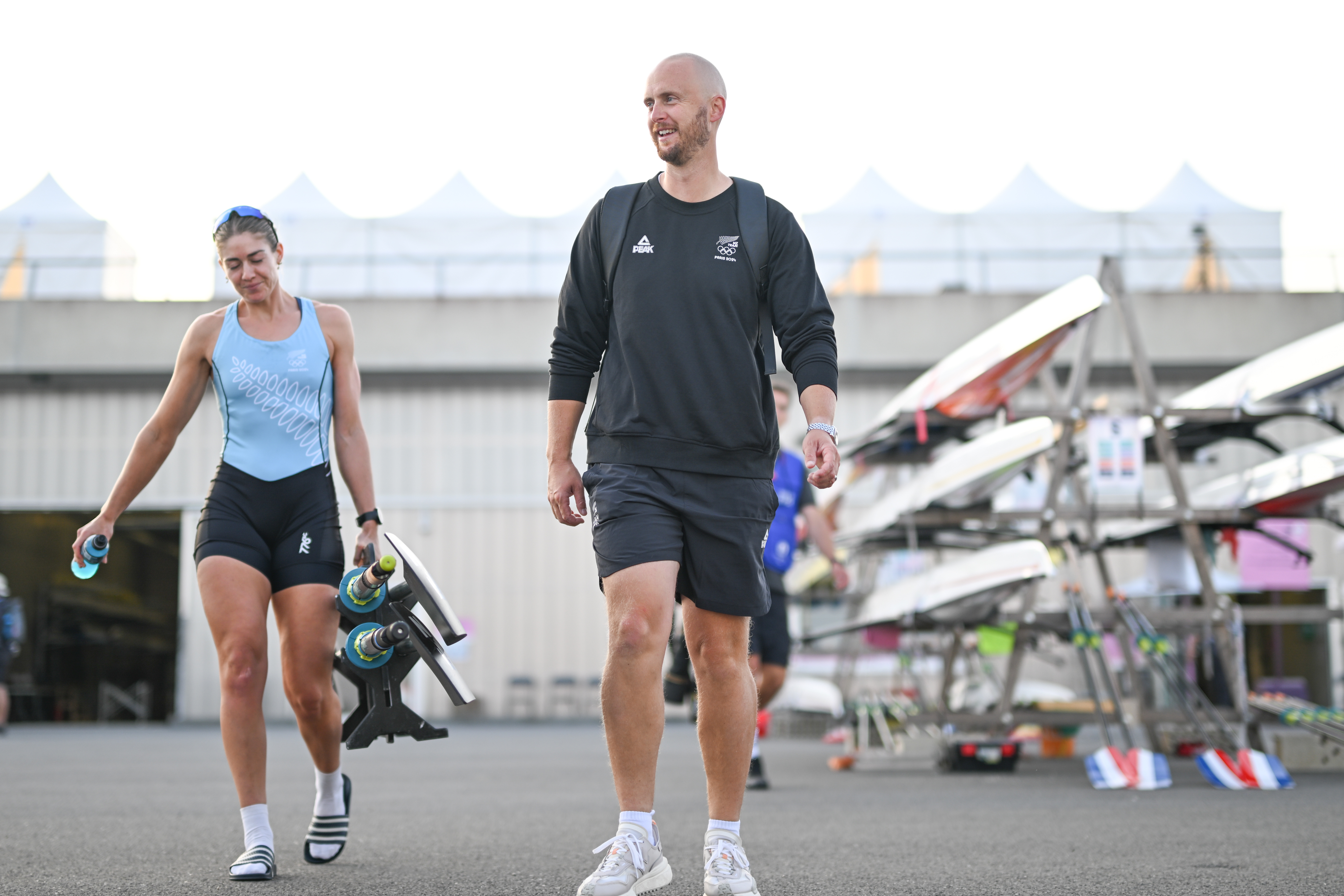Tom Stannard
Tom Stannard
- Coach Profile
Like so many of us, Tom Stannard came to a crossroads in life. One path led to music, a passion that had fuelled a fire within. The other led to sport, his other pursuit. Growing up, he’d split his time between both. It was a balancing act that by his own admission had left his schoolwork fairly compromised.
The common ground at that crossroads was his interest in guiding others. Stannard had been teaching music. Alternatively, he could advance his coaching career in rowing.
The choice was made and now Stannard, an Elite Rowing Coach at Rowing New Zealand, spends his time ensuring he is in tune with his athletes as they look to make music on and off the boat.
Stannard’s early sporting interests were away from the water. The first sport he took seriously was soccer, starting as a defender and moving to goalkeeper. He also dabbled with mountain biking and basketball. It wasn’t until he was at high school at St Peter’s in Cambridge that he started rowing.
In his first year in the sport, the rowing programme at St Peter’s underwent substantial change, with a new sporting director, Janey Charlton, at the helm. Stannard’s working relationship with Charlton started back then, and over 20 years later, the 34-year-old Stannard and Charlton are still working together, with Charlton in the role of Athlete Development Manager at Rowing New Zealand.
As he himself acknowledges, Stannard’s rowing ability and career was ‘ok’ and it was largely socially focussed. He still has close friends from those crews and times. Although he won medals at North Island secondary schools regattas, success never came at Maadi Cup.

Alongside rowing, Stannard took up playing the drums in his early teens and his love of music developed and stayed alongside sport for years to come. In time however, Charlton offered Stannard a role helping with the rowing programme at St Peter’s.
“I was getting to help out and see another side of the sport and learn a bit more about it. It was very on and off at the start because I was at university up in Auckland. I tried to come down and help out at weekends and camps and things like that as much as I could for a number of years,” Stannard says.
Fast forward to 2015 and Stannard was teaching music, gigging a lot and still coaching at St Peter’s.
“One thing I figured out, was that I liked working with highly driven people, so I think that was what really gave me a buzz early on. I needed to get a job to earn money and I was in the process of going over to Canada to be a rowing coach in one of the schools over there,” Stannard says.
“A job came up at Rowing New Zealand as an assistant coach down in Christchurch for the Southern RPC (Regional Performance Centre) and I ended up applying for it and I was really grateful that I got an interview and I ended up getting the job, which quickly changed things,” he says.
With the crossroads navigated, Stannard’s career and development has gone from strength to strength in the decade that’s followed.
Stannard is part of a stable group at Rowing New Zealand. There’s a lot of experience in the organisation and a lot of intellectual property. It’s a supportive and open environment where colleagues look to help each other for the greater good.
He was away for 13 weeks earlier this year as the Olympics took over his life but is grateful that Rowing New Zealand were able to support him through a ten-day visit from his wife Trish and daughter Darcy.
Now that the Paris games are behind him, Stannard is running Rowing New Zealand’s women’s programme with colleague James Coote.

“A lot of our work is off water, trying to establish what the most important foundations are for the women’s programme to perform on and what’s it going to take for the women’s programme to win, in general, on an individual level, Stannard says.
“As we progress through the season as we trial and get into boats, then that will specify into what that looks like for boat classes. Intentionally at the moment we’re trying to simplify things down to a couple of things we really need to get a handle on.”
Stannard’s acutely aware that the needs of different people across the programme is something that needs suitable approaches. Although he’s now working with the women’s programme, he’s had plenty of time coaching younger men for example.
“The spectrum of how people are going to be able to deal with interpersonal conflict or vulnerability is very different. With younger men you’ve got to take the lead more as they’re still in the space of teaching them what to think rather than how to think” Stannard says.
Similarly, no two coaches operate, think or communicate exactly the same. The key thing for a group of coaches is that the overall message is consistent.
“People can have different opinions but you’re going to get the same message and that’s going to transfer through and hopefully that’s an easier environment for the athlete to navigate. A lot our time off water is checking that the programme is delivering on that, checking where we’re going.”
Stannard still feels like he’s got a lot to learn even though next year will be his tenth working for the organisation. He’s grateful for not just his own rowing colleagues, but also the wider coaching community who he can call upon.
“The benefit that I think we have in New Zealand in our coaching development programmes is that we have so many different coaches from different sports and backgrounds,” Stannard says.
“Even in the Waikato we’ve got cycling, equestrian, rowing, canoeing, kayaking. There’s just such a rich group of coaches to get together and learn from. There’s so much crossover. I make sure that I’m checking in to make sure I’m still learning. I’m naturally curious anyway so I want to be engaging with those sorts of programmes and people.”
As for the future, rowing is one of those sports that has its short and medium term goals, but as an Olympic sport, there’s a natural four-year cycle to navigate, and Los Angeles will come round before you know it.
“I would love to be able to be involved in this women’s programme until 2028 and be involved in helping develop the programme, qualify boats and then go to the Olympics.”